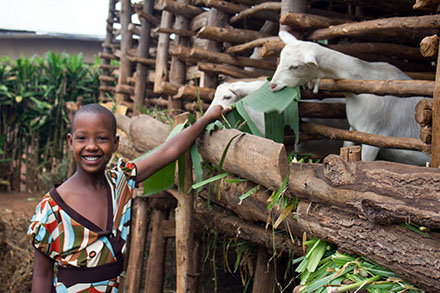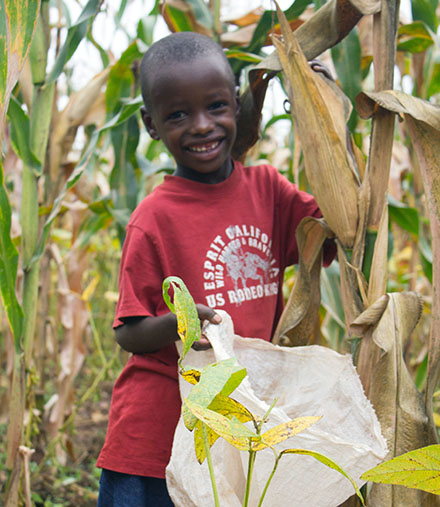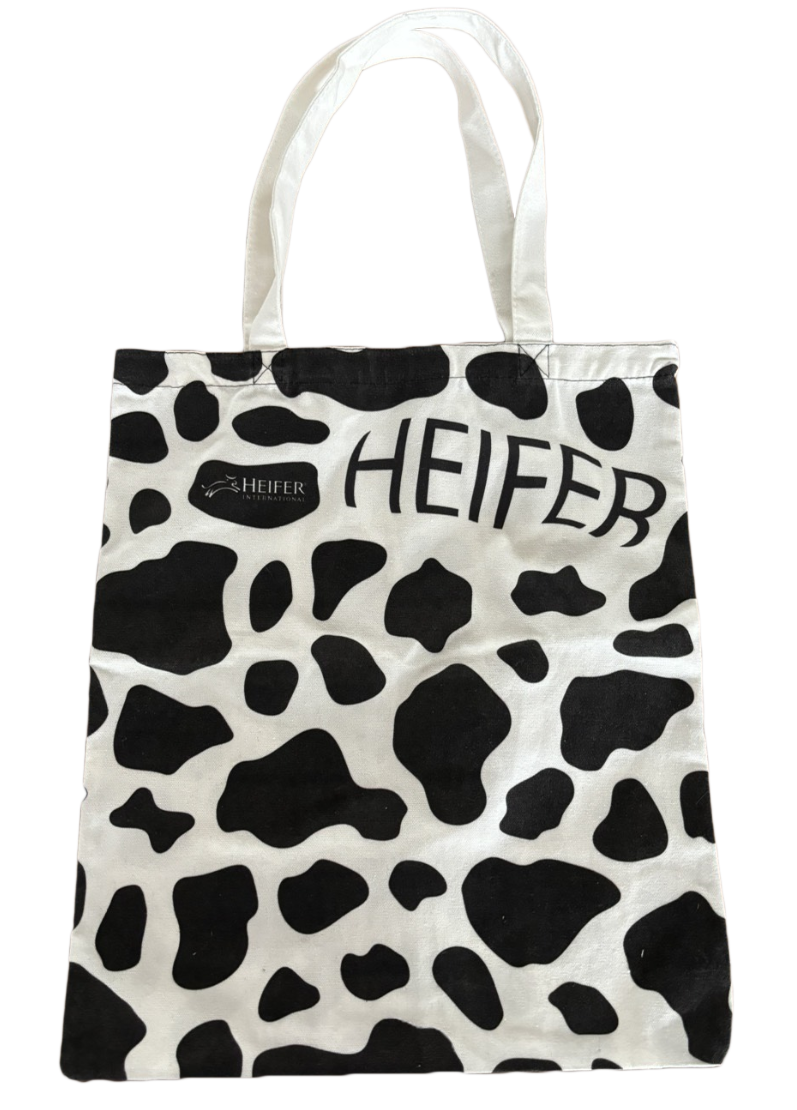It was about five years ago when Karegeya Francois first heard that Heifer Rwanda was starting a goat project in Rwangabarezi village.
It intrigued him and his wife, Muskansanga Esperance, but Francois was skeptical. Though Rwandans have a long history of cattle herding, Francois said there is a cultural resistance to goat farming.
“We were desperate at that time. Many people and organizations had come [to Rwangabarezi] and made promises before, but they never came back,” he said.

Francois, Esperance and their seven children were trapped in grinding poverty. Francois earned less than $200 a year. They had no animals to provide manure, meat or income. Even worse, the couple and one of their daughters are HIV-positive. They were always sick and without the energy to work, so they weren’t able to save money. Whatever little money they could scrape together would be used immediately.
In mid-August 2011, among Heifer’s gifts of gardening tools, vegetable seeds, mineral licks and animal medication, Francois received a white purebred Saanen dairy goat. Within a month she gave birth and started producing about three quarts of milk a day.
Following trainings on kitchen gardening, animal husbandry, record keeping, nutrition, HIV awareness and Heifer’s 12 Cornerstones for Just and Sustainable Development, Francois was eager to pass on the gifts of his family’s newly gained sustainability and self-reliance. Since 2011, their first goat has produced five offspring, and those produced 12 more. Now the family owns 10 goats, three of which are milk-producing, and two cows.
Help launch a chain of positive change for a family like Francois’.
“We thought milk was just for children, but now adults drink it because we see it as a medicine,” Francois said.
HIV-positive mothers are their biggest buyers. The women, who are weak from recent childbirth, recover more quickly if they drink goat milk. News of the milk’s health benefits has spread and now even people without HIV will drink it. Many of Francois’ friends tell him they like the taste of goat milk more than cow milk.
“Before, I wouldn’t even have considered drinking goat milk. Now no one can take it away from me. Cow’s milk doesn’t even compare,” Esperance said.
“People have come to value and love these goats,” said Francois.
His family now sells about six quarts of goat milk for $3.54 each day.
The stigma of being HIV-positive always loomed over them. The couple both knew they were infected by 2000. Their daughter, Belize, is their only child who is HIV-positive, but all of their children were bullied at school for having sick parents.
Their improved diet boosted their health. Their cell counts are more stable. Esperance is much stronger and has almost doubled her body weight.
“This intervention Heifer made saved our lives,” said Francois.
Esperance said Francois has gotten stronger, too. “He is able to work more; I can see that he is more creative and enterprising,” Esperance said.
As part of the project, Francois participated in some trainings on manure, composting and crop production. He knew manure was good for crops, but didn’t realize how important it was.

“That training opened my mind to things we took for granted,” said Francois.
Before the project, they only grew maize and beans because their soil quality was poor and their yields were low. Incorporating manure into their farming has improved the land and increased their yields.
Where in the past they would have only produced two bags of beans, they are harvesting 10 bags. They cultivate a little more than one acre with a variety of crops: maize, soybeans, cabbage, beets, onions, matooke (a type of banana used for cooking). Their crops feed the family, with plenty left over to sell.
“This project has changed our history,” said Esperance. “It gave us milk and made us wealthy.”
“Heifer has raised my children,” said Francois. “It is because of them that we can afford their school fees.”
They spend more than $1,100 each year to send their children to primary and secondary schools.
Francois and Esperance believe that a good education is the only sure way for their children to have a better life.
“I want all of my children to broaden their minds and to go to university. I don’t want them to lack for anything at all,” said Esperance.
Francois, who was once discriminated against for being HIV-positive, is now a model farmer in his community. He is working to break down cultural barriers and show outsiders the value of goats. Groups of farmers tour his farm to learn about goats, goat milk, livestock management and more. After a group of blind people visited his farm, Francois and his group decided to pass on 10 goats to them in November 2014. He was so happy to pass on that he decided to give two goats.
Francois also wants to further develop his goat business by processing the milk and making goat cheese.
Francois said Heifer’s success is different because they look beyond short-term relief to change families forever.
“I owe my life to Heifer and the government that brought them here. Thank you for being an organization with compassion,” Francois said. “You rescued us.”
Story and photos by Christian DeVries and Katya Cengel

